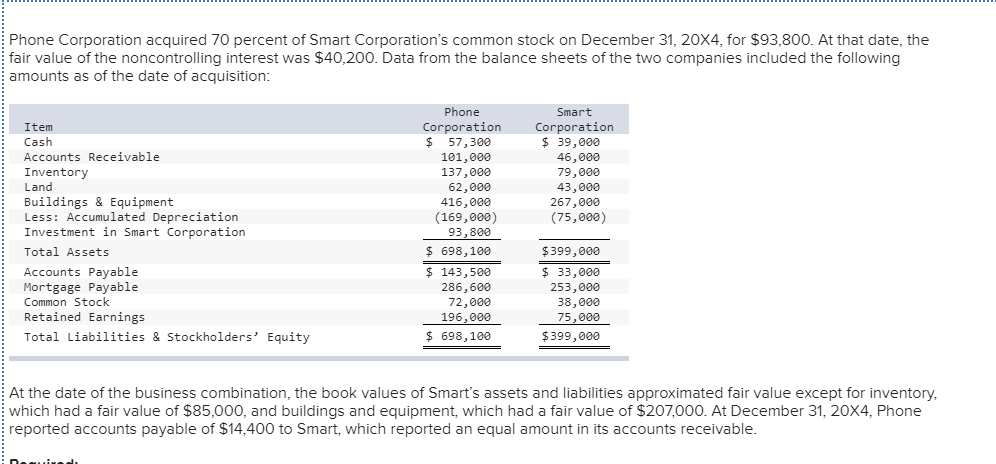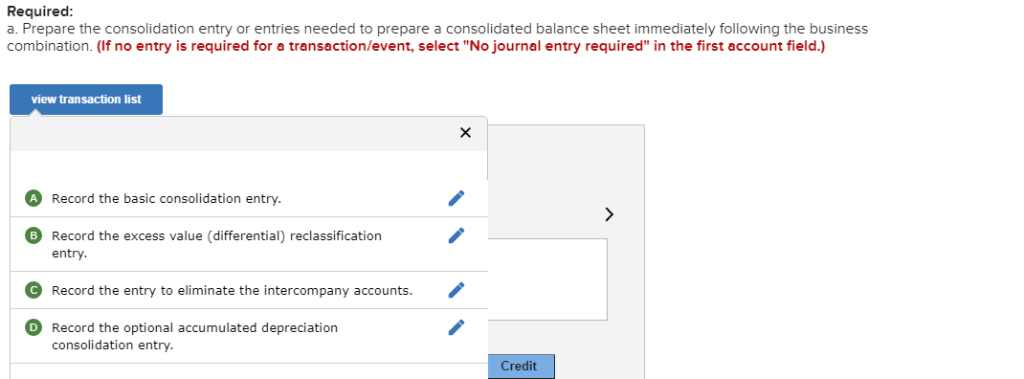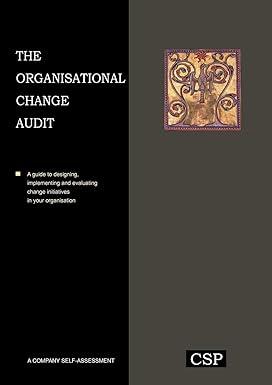Question
b. Prepare a consolidated balance sheet worksheet. (Values in the first two columns (the parent and subsidiary balances) that are to be deducted should be


b. Prepare a consolidated balance sheet worksheet. (Values in the first two columns (the "parent" and "subsidiary" balances) that are to be deducted should be indicated with a minus sign, while all values in the "Consolidation Entries" columns should be entered as positive values. For accounts where multiple adjusting entries are required, combine all debit entries into one amount and enter this amount in the debit column of the worksheet. Similarly, combine all credit entries into one amount and enter this amount in the credit column of the worksheet.)
Phone Corporation acquired 70 percent of Smart Corporation's common stock on December 31, 20X4, for $93,800. At that date, the fair value of the noncontrolling interest was $40,200. Data from the balance sheets of the two companies included the following amounts as of the date of acquisition Phone Corporation Smart Corporation Item Cash Accounts Receivable Inventory Land Buildings & Equipment Less: Accumulated Depreciation Investment in Smart Corporation Total Assets $57,300 101,000 137,000 62,000 416,000 $ 39,000 46,000 79,000 43,000 267,000 (75,000) (169,000) 93,800 $ 698,100 $ 143,500 286,600 72,000 196,000 $698,100 $399,000 $ 33,000 Accounts Payable Mortgage Payable Common Stock Retained Earnings 253,000 38,000 75,000 Total Liabilities&Stockholders' Equity $399,000 At the date of the business combination, the book values of Smart's assets and liabilities approximated fair value except for inventory which had a fair value of $85,000, and buildings and equipment, which had a fair value of $207,000. At December 31, 20X4, Phone reported accounts payable of $14,400 to Smart, which reported an equal amount in its accounts receivable Required: a. Prepare the consolidation entry or entries needed to prepare a consolidated balance sheet immediately following the business combination.(If no entry is required for a transaction/event, select "No journal entry required" in the first account field.) view transaction list Record the basic consolidation entry B Record the excess value (differential) reclassification entry Record the entry to eliminate the intercompany accounts. D Record the optional accumulated depreciation consolidation entry CreditStep by Step Solution
There are 3 Steps involved in it
Step: 1

Get Instant Access to Expert-Tailored Solutions
See step-by-step solutions with expert insights and AI powered tools for academic success
Step: 2

Step: 3

Ace Your Homework with AI
Get the answers you need in no time with our AI-driven, step-by-step assistance
Get Started


